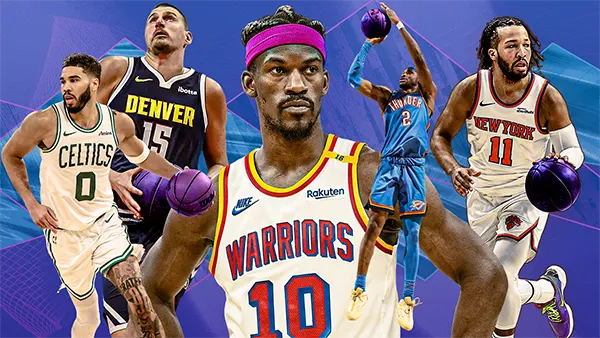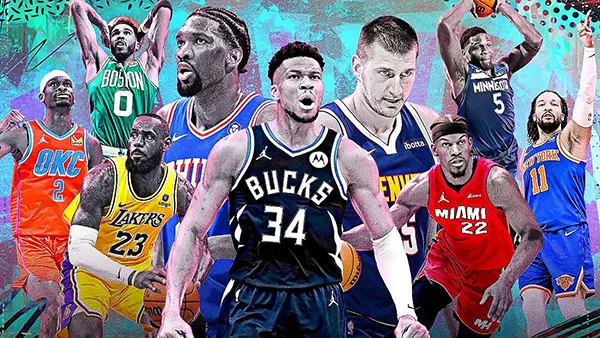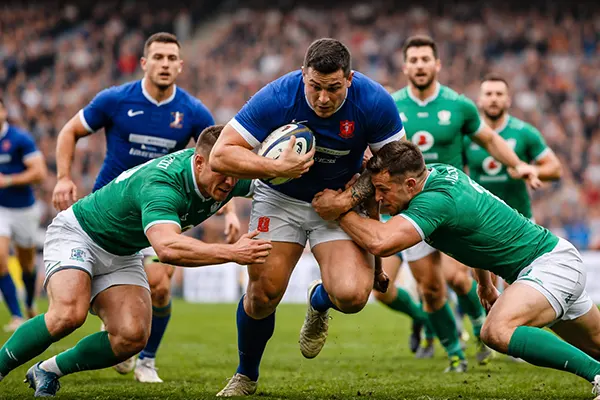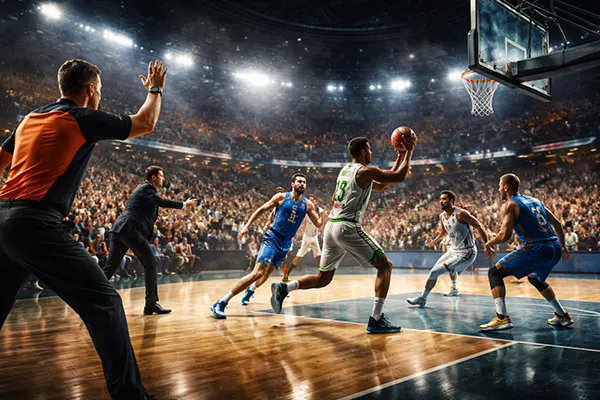NBA 2025: Who Will Be LeBron James’ Successor?

The 2024/25 NBA season has sparked one of the most intriguing debates in modern basketball: who can take over the symbolic throne of LeBron James? With the superstar now in the twilight of his career, discussions about the next global face of the league are at the centre of every analysis. While no player can truly replicate LeBron’s blend of dominance, leadership, and longevity, several rising stars and established names are pushing to become the NBA’s new standard-bearer.
Rising Stars Taking Centre Stage
One of the strongest candidates is Victor Wembanyama, who has already changed the way the game is played. His extraordinary combination of size, skill, and defensive presence makes him a once-in-a-generation prospect. By 2025, Wembanyama has not only confirmed his rookie hype but also positioned himself as a cornerstone for the San Antonio Spurs and possibly the entire league.
Another notable name is Luka Dončić, who continues to redefine offensive efficiency with his versatility. At just 26, he has already achieved historic statistical milestones and proven himself in international competitions. His ability to control the pace of games places him firmly in the conversation as the most influential player post-LeBron era.
Beyond these two, players like Anthony Edwards and Ja Morant are shaping their reputations. Edwards has developed into a reliable leader for the Minnesota Timberwolves, combining elite scoring with defensive growth. Morant, despite past controversies, remains one of the most electrifying guards in the league with unmatched explosiveness.
International Influence and Marketability
The NBA’s global expansion means that the next LeBron is not only judged by on-court performance but also by worldwide appeal. Dončić, already an icon in Europe, commands immense international attention. Wembanyama’s presence as a French superstar is set to boost the NBA’s reach across Europe and beyond.
Marketability plays a crucial role in defining a successor. Players like Edwards and Jayson Tatum resonate with younger audiences, blending athleticism with charisma. Their presence on social media and endorsement opportunities also increase their chances of becoming global symbols.
This global aspect separates the new generation from previous eras. Unlike earlier decades, modern contenders must dominate both the court and the cultural conversation, ensuring they represent the league far beyond North America.
Established Stars Holding the Torch
While attention often shifts to rising prospects, established players like Giannis Antetokounmpo and Stephen Curry still define the league’s highest standards. Giannis, a two-time MVP and NBA champion, continues to deliver remarkable performances with the Milwaukee Bucks. His relentless drive and leadership qualities reflect many of LeBron’s attributes.
Curry, although closer to the end of his career, has cemented himself as a revolutionary figure. His influence on modern basketball strategy, particularly the emphasis on three-point shooting, ensures his legacy endures. However, his age makes him more of a current icon than a long-term successor.
Tatum also deserves mention. By 2025, the Boston Celtics forward has entered his prime, with consistent scoring averages and improved leadership on a championship-contending team. His ability to perform under pressure and lead one of the NBA’s most historic franchises places him high on the list of potential successors.
Balancing Legacy and Longevity
A true successor to LeBron must balance peak performance with career longevity. Giannis and Tatum have shown resilience, avoiding major declines in form despite heavy workloads. This endurance is critical, as LeBron’s defining trait was not only dominance but also his ability to remain at the top for nearly two decades.
Legacy also plays a role. Players who can consistently reach NBA Finals, win championships, and lead their franchises through sustained success will naturally emerge as LeBron’s heirs. In this context, Tatum’s Celtics and Giannis’ Bucks represent strong candidates for long-term dominance.
The challenge lies in combining individual excellence with team success. A successor cannot merely accumulate statistics; they must influence the outcome of seasons, inspire teammates, and capture the imagination of fans worldwide.

The Next Global Face of the NBA
By 2025, the NBA is no longer a league dominated by one single figure. Instead, it thrives on a constellation of stars, each contributing to the game’s evolution. While LeBron James has been the defining face of the sport for nearly two decades, the post-LeBron era seems destined to be more diverse and decentralised.
If one player must be named, Wembanyama stands out as the most likely successor. His age, potential, and unique skills give him the chance to become the league’s centrepiece for years to come. However, Dončić’s brilliance and Giannis’ consistency make the race far from one-sided.
Ultimately, the NBA’s strength lies in its depth of talent. Instead of searching for a single heir, the league embraces multiple superstars, each carving their legacy while carrying the torch of basketball into a new era.
Looking Ahead
The next decade will define whether the NBA shifts towards a multi-superstar narrative or crowns a single dominant figure. Fans and analysts alike will monitor how Wembanyama, Dončić, Edwards, Tatum, and Giannis shape their careers and impact the global game.
For the NBA, this diversity ensures stability and excitement. Even as LeBron gradually exits the stage, the league remains stronger than ever, ready to elevate new icons who can inspire future generations.
One certainty is that LeBron’s influence will continue to be felt, both directly and indirectly. Whoever becomes the new face of the NBA will inevitably be measured against his unparalleled standard, setting the bar for what greatness truly means in basketball.




